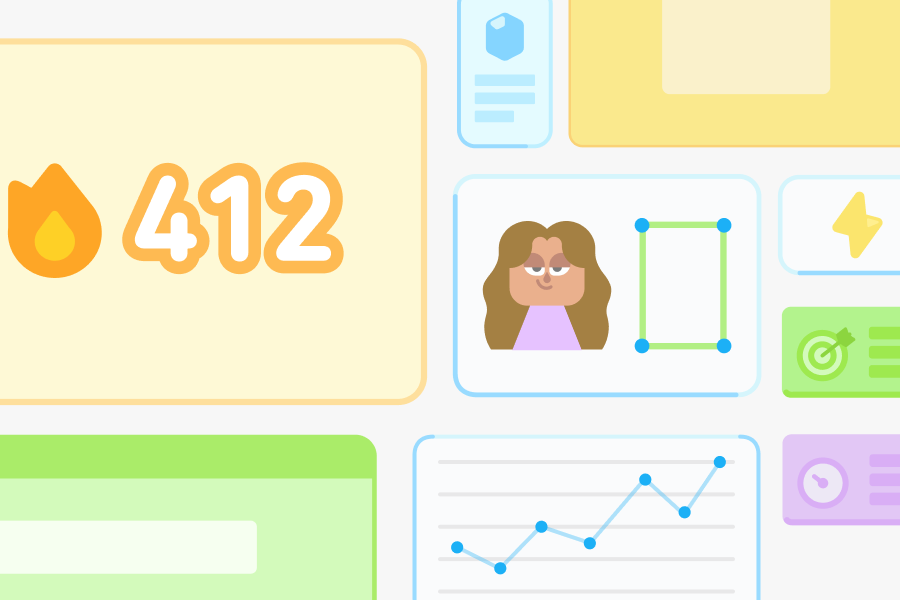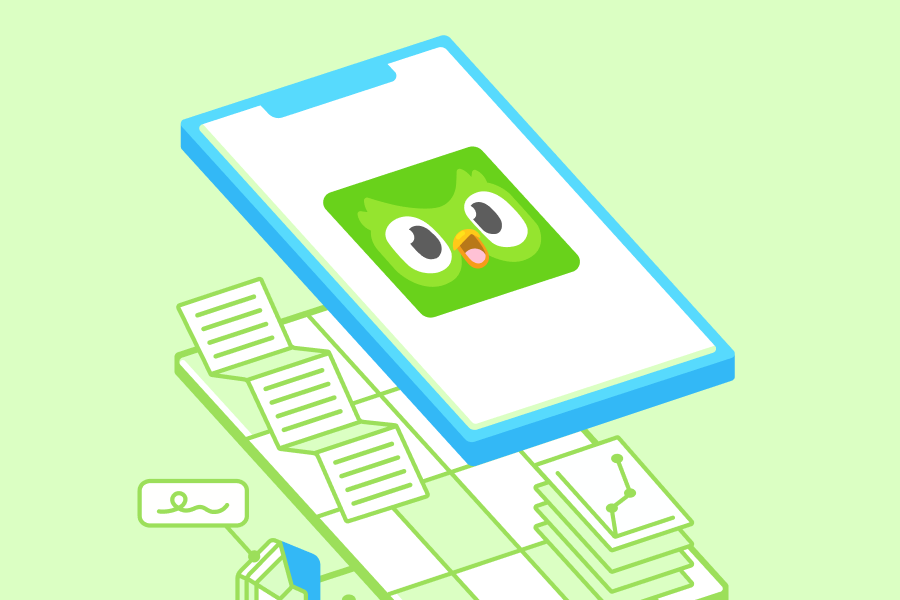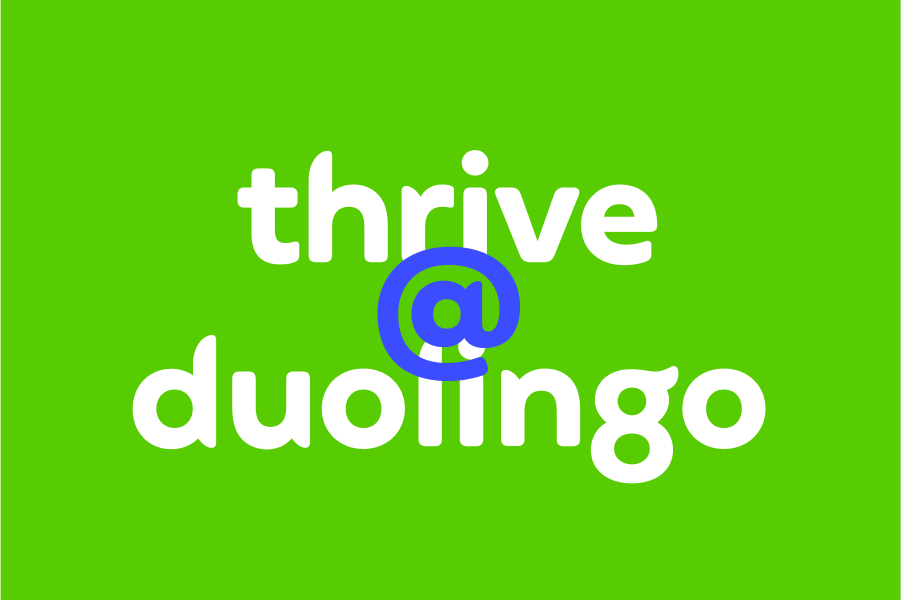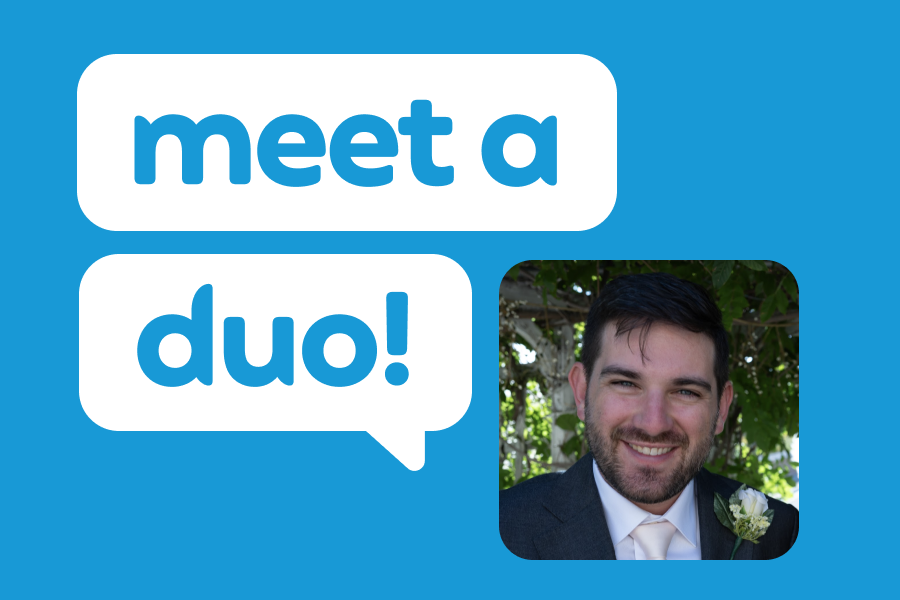At Duolingo, we know that AI and education are a powerful duo. AI can help us achieve our mission of making the best education in the world accessible to everyone much faster than if we worked at it alone.
While we’re excited about the many possibilities for artificial intelligence, we’re also committed to using AI for good, no matter what. We’ve been working with this innovative technology for years, and we’re proud of the ways that we’ve used it to advance our mission and improve the educational experiences for millions of people around the world. How do we do it? We were hoping you’d ask!
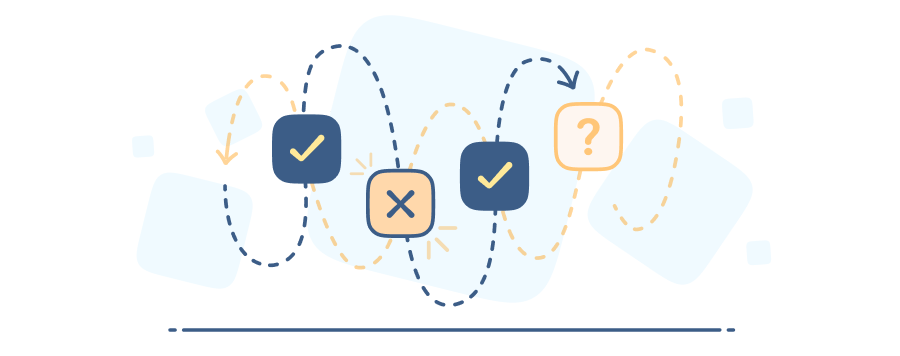
We create personalized educational experiences
By analyzing how users interact with the app, we can identify areas of strength and weakness, and then adjust the lessons and exercises to make the experience more engaging—and learning more efficient.
AI helps us analyze user responses in order to identify common grammar mistakes and make corrections and suggestions, and analyze the sounds and patterns of your speech, so we can provide targeted feedback on your pronunciation. It’s also behind the auto-suggest in Stories freeform writing exercises, that helps learners learn to write in the language they’re learning.

We ensure learning is fun and accessible to everyone
But it’s not just about providing feedback. AI shows up in lots of ways you might not think about. It’s in the little things that make lessons fun, like the custom voices we’ve created for Lily, Zari, Oscar, and all of our world characters. It’s also the technology that lets us deliver the DET, our high-stakes English Proficiency exam, securely to hundreds of thousands of test takers worldwide.
The research team behind the Duolingo English Test (DET) has been using AI since its beginning (nearly seven years ago!) to make the test do everything a traditional in-person, paper-based test can do—but in half the time, and less than half the cost. Computer-adaptive technology makes the test shorter, automated item generation and scoring to make it more affordable, and secure at-home testing make it more accessible to more people.

And most importantly, we maintain important security and safety standards
The DET has been using GPT-3 since 2021, and recently upgraded to GPT-4, to experiment with new item types that make the test more engaging and more effective at assessing proficiency. DET scores are used for international university admissions, so the stakes are high—which is why it’s so important that as we stay up to date on the latest technology, we have clear and transparent guidelines for how we use it.
That's why we're making a deliberate effort to develop standards for practicing responsible AI at Duolingo, and to lead the industry in formalizing those standards—the most recent standards for educational and psychological testing were last published in 2014, and don’t take modern AI advances into account.
Our responsible AI standards are best practices for ensuring accountability, transparency, fairness, privacy, and security in testing. By sharing them with the public, we hope to continue to lead the way in digital-first assessment.
Generative AI will continue to evolve in ways we can’t yet imagine. But we have a lot of experience working with this powerful technology, and will continue to use its incredible capabilities to improve the lives of learners all over the world as part of our mission to make high-quality education available to everyone on the planet. From high-stakes English proficiency testing to language, math, and literacy lessons, we’re ready (and excited) for all the innovation to come!
